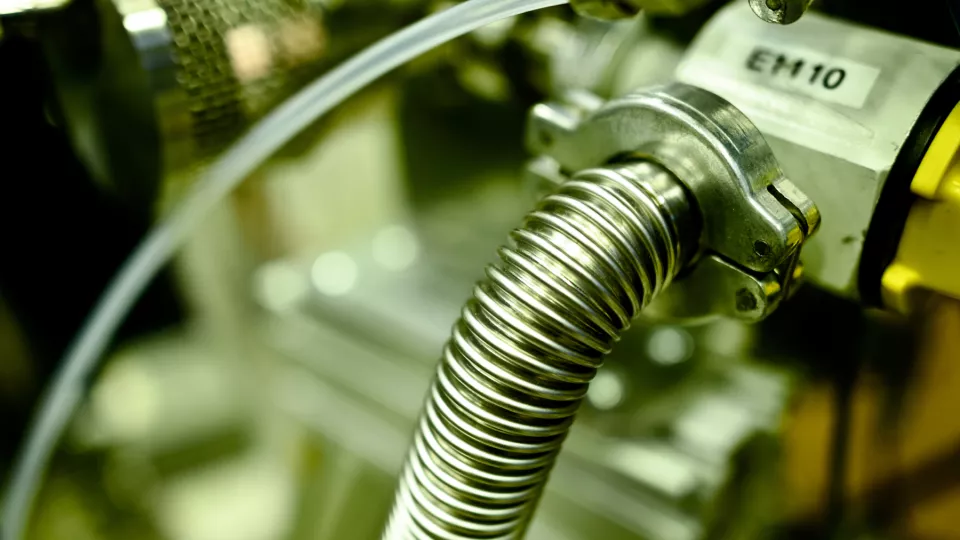To combat climate change and to transform into a sustainable society, there is an urgent need for new advanced materials. To speed this development, cutting-edge research infrastructures are needed to enable the generation of new knowledge of materials and to develop green technology solutions.
“Finding new materials for a sustainable world can only be achieved by better knowledge. Material scientists make use of research tools, in the form of spectrometers, microscopes, and other instruments to discover and understand the fundamental properties of materials. We are very enthusiastic about this investment in research technology platforms, and we are convinced that they will make a tremendous impact on the transformation towards a sustainable future,” say Magnus Berggren and Olle Eriksson, director and co-director of WISE, respectively.
Finding new materials for a sustainable world can only be achieved by better knowledge.
Infrastructures for transmission- and scanning electron microscopy, photoelectron spectroscopy, nuclear magnetic resonance and magnetic resonance imaging, mass spectroscopy, crystallography, additive manufacturing, as well as dedicated fabrication and synthesis laboratories for electronic and circular materials are being financed. Several of the research technology platforms will be organized as distributed infrastructures, with complementing equipment hosted at individual universities. Substantial additional financing and support are also provided by the WISE partner universities.
The equipment is expected to be commissioned in 2024 and run throughout the entire WISE project period. For the more time-consuming build-up of certain WISE research platforms, the equipment is expected to be in operation during 2025.
Electron microscopy and materials fabrication
Lund University is funded 45,5 MSEK for electron microscopy, and the technology platform is run together with KTH and Stockholm University for a total of nearly 103 MSK.
In addition to that, Lund gets 44,1 MSEK for materials fabrication in collaboration with KTH which is funded with 21 MSEK, making a total of more than 65 MSEK. Luke Hankin, director of the Lund Nano Lab, looks forward to getting started:
“The equipment will be critical to research into materials to enable a sustainable society by electrification, energy-saving, and clean energy,” he says.
Linking to the Vinnova competence centres
He is specifically referring to a III-Nitride hot-wall MOCVD – Metal Organic Chemical Vapour Deposition – that will be placed in Lund at the Myfab facility Lund Nano Lab. This equipment is also relevant to the C3NiT competence centre, funded by Vinnova and led by professor Vanya Darakchieva.
A further tool getting funding from WISE in the materials fabrication area is the Deep Reactive Ion Etch (DRIE) tool. It is a generally applicable tool for deep etching of many different materials that, in conjunction with MOCVD and atomic layer deposition/chemical vapour deposition will be pivotal in enabling new possibilities in 3D materials fabrication for research into sustainable materials.
The newly funded Vinnova competence centre Sentio, led by Anders Mikkelsen, will be mutually beneficial to the equipment funded by WISE: In specific industrial-relevant material science efforts to integrate nanosensors with metal alloy tools and products, the DRIE will be relevant for integrating semiconductors for sustainable metal products and production. Also, it will open new opportunities for major Swedish industries to optimize both energy and material consumption by adaptive control as well as using recycled materials.
“Once the funding is granted, we will make a procurement, and then order equipment, install and start up,” says Luke Hankin, who was in the team writing the application together with Anders Mikkelsen, Vanya Darakchieva and Vladimir Korenivski at KTH.


